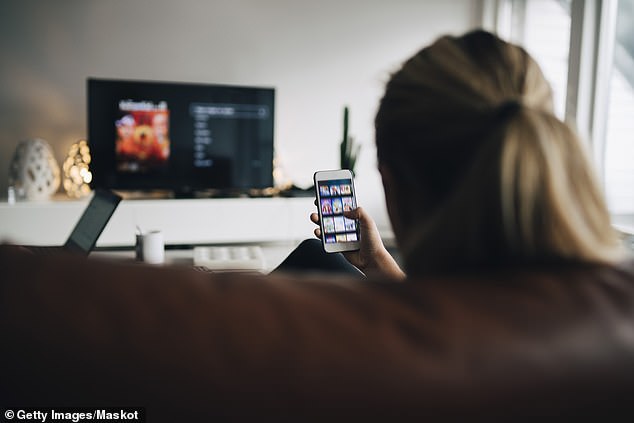Teens who spend more than two hours a day scrolling on phones or tablets double their risk of developing anxiety and quadruple their chances of depression, say scientists.
Prolonged screen time, particularly passively scrolling or ‘doomscrolling’, led to heightened anxiety, depression, aggression and impulsiveness among adolescents who took part in a nine-month study.
Neuroscientists said 45 per cent of the 12 to 17-year-olds they studied, who had no prior mental health conditions, experienced psychiatric symptoms that needed further medical evaluation.
‘This is really surprising,’ said Prof Emma Duerden, Canada’s research chair in neuroscience and learning disorders.
‘It is much higher than we would expect to see. Before Covid, rates of anxiety in adolescents were between 8 and 15 per cent. Now, we see almost half of the sample size reporting heightened anxiety, which is alarming.’
The research comes amid a growing mental health crisis in Britain’s schools, with NHS data showing more than a fifth of eight to 16-year-olds had a probable mental health problem in 2023, a rise of 7 per cent since 2017.
In the latest study, pre-existing issues such as mental health conditions, as well as screen use, demographic data, emotional and behavioural difficulties and levels of perceived anxiety were collected from 580 youngsters.
Time spent on screens, as well as screen-use behaviours such as frequency, total time, posting content on social media and passive scrolling were tanalysed.

Teens who spend more than two hours a day scrolling on phones or tablets double their risk of developing anxiety and quadruple their chances of depression, say scientists
Passive scrolling, which includes ‘doomscrolling’ or the mindless act of consuming content on social media, had by far the strongest negative influence on adolescents.
Prof Duerden said limiting a child’s screen time to no more than two hours a day and encouraging physical activity would boost well-being.
But she admitted steering children away from their digital devices was not easy.
‘In past studies, we’ve shown some teens reporting 15 hours of screen time a day. They wake up, go on a screen and stay the whole day.
‘This is a critical period for brain and behavioural development, including emotional regulation and impulse control.’












